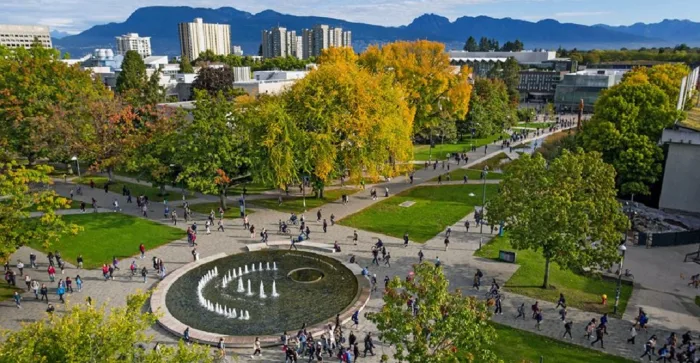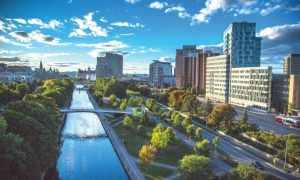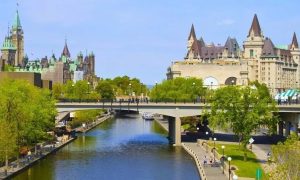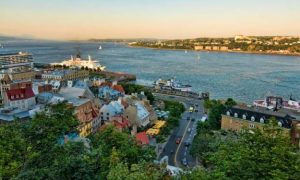immigrantsCanada is an important life plan for many families, but before going through the application process, the biggest concern is often not the policy, but the actual cost. How much does it really cost? What expenses are necessary? Is there any way to save? This article will provide you with a detailed analysisCanada Immigration Feescomposition and share some practical money-saving tips.
I. Required fees for immigration applications
1. Government application fee
-
Main Applicant Fee: Approximately $1,365 CAD (includes application fee and permanent residency fee).
-
Spouse or partner: approximately $1,365.
-
Children: approximately 230 Canadian dollars each.
For a family of three, the government application fee alone would cost Approaching $3,000The
2. Language examination fees
Most immigration routes require IELTS General or CELPIP scores, which cost between $10,000 and $50,000 per year. Around RMB 2,000, it may take multiple exams to achieve the desired score.
3. Accreditation (ECA)
Applicants who have completed their education outside of Canada are required to have their education certified at a cost of $10,000 per year. 200-300 Canadian dollars around, varying slightly depending on the certification body.
4. Costs of medical examinations
All applicants must complete a medical examination at a designated hospital for approximately RMB 1,000-2,000 per person.
5. Background checks and notarization
Including a certificate of no criminal record, translation and notarization of documents will cost approximately several thousand RMB.
II. Financial requirements before and after landing
1. Proof of funds
skilled migrantThe categories usually require the applicant to provide proof of funds to ensure that the family can maintain a basic living after landing. The amount depends on the size of the family:
-
Single: approximately C$13,000;
-
Family of three: approximately $20,000;
-
Family of four: approximately $24,000.
2. Post-arrival living expenses
-
Rent: In big cities such as Toronto and Vancouver, the monthly rent for a two-bedroom apartment is about 2,000-2,500 Canadian dollars; in smaller cities, it is relatively cheap.
-
Transportation: Monthly public transportation passes are approximately $120-160 CAD.
-
Groceries: approximately $800-$1,000 per month for a family of three.
-
Medical: Although there is universal healthcare coverage, additional insurance is often required for items such as dental and vision care.
III. Hidden Costs and Cautions
In addition to the obvious costs, manyrecent immigrantsSome hidden costs will be ignored:

-
Certification and License Conversion Fee: Professions such as doctors, nurses, engineers, etc. require additional certifications that can cost tens of thousands of dollars.
-
Vocational training courses: Training courses to enhance competitiveness in employment are also an expense.
-
emergency fund: It may not be easy to find a job when you first arrive in Canada, so it is safer to have at least 6 months of living expenses.

Fourth, money-saving techniques open
1. Advance planning for examinations and certification
Passing IELTS or CELPIP in one go can save you the cost of repeating the exam; choosing a cost-effective organization for academic certification can also avoid unnecessary expenses.
2. Application for Provincial Nomination or Study Abroad Transfer
Some provinces have lower immigration fees or lax requirements for proof of funds; study abroad transferees can eliminate some of the proof of funds.
3. Reasonable choice of city of residence
Vancouver and Toronto have a high cost of living, while Saskatchewan, Mann, and New Brunswick have a much lower cost of living for families with limited budgets.
4. Optimizing the use of secondary markets and public services
Canada has a well-developed second-hand market, where furniture and appliances can be purchased at low prices; libraries and community centers also offer a wealth of free resources.
5. Flexible planning for family applications
When both spouses are eligible, you can compare who is more cost-effective as the main applicant to avoid wasting bonus points and duplicating costs.
V. Conclusion
Immigration to CanadaThe costs are indeed not insignificant, but they are not out of reach. There are reasonable explanations and necessities for most of the expenses, and the key is to budget well in advance to avoid adding to the burden on an ad hoc basis. By planning your exams wisely, choosing the right city and province, and making good use of local resources, it is entirely possible to significantly reduce the overall cost. For families planning to immigrate, the cost is just a threshold in the process, not a stumbling block to realizing a new life.






